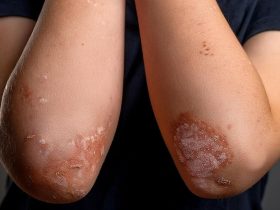Area under receiver operating characteristic curve for discriminating ASD from non-ASD was 0.90 using multiple gaze features
MONDAY, May 10, 2021 (HealthDay News) — An app that elicits and quantifies eye-gaze patterns of toddlers could differentiate between those with and without autism spectrum disorders (ASDs), according to a study published online April 22 in JAMA Pediatrics.
Zhuoqing Chang, Ph.D., from Duke University in Durham, North Carolina, and colleagues conducted a prospective study in pediatric primary care clinics comparing toddlers with and without ASD. A total of 993 toddlers, aged 16 to 38 months, who were able to sit and view the app, completed the study measures. The app, which was deployed on an iPhone or iPad, displayed strategically designed brief movies that could elicit and quantify eye-gaze patterns.
The researchers detected distinctive eye-gaze patterns in toddlers with ASD, which were characterized by reduced gaze to social stimuli and salient social movements during the movies; in addition, previously unknown deficits were identified in coordination of gaze with speech sounds. Using multiple gaze features, the area under the receiver operating characteristic curve discriminating ASD versus non-ASD was 0.90.
“We hope that this technology will eventually provide greater access to autism screening, which is an essential first step to intervention,” a coauthor said in a statement. “Our long-term goal is to have a well-validated, easy-to-use app that providers and caregivers can download and use, either in a regular clinic or home setting.”
Several authors disclosed financial ties to biopharmaceutical and information technology companies, including Apple Inc.
Copyright © 2021 HealthDay. All rights reserved.







